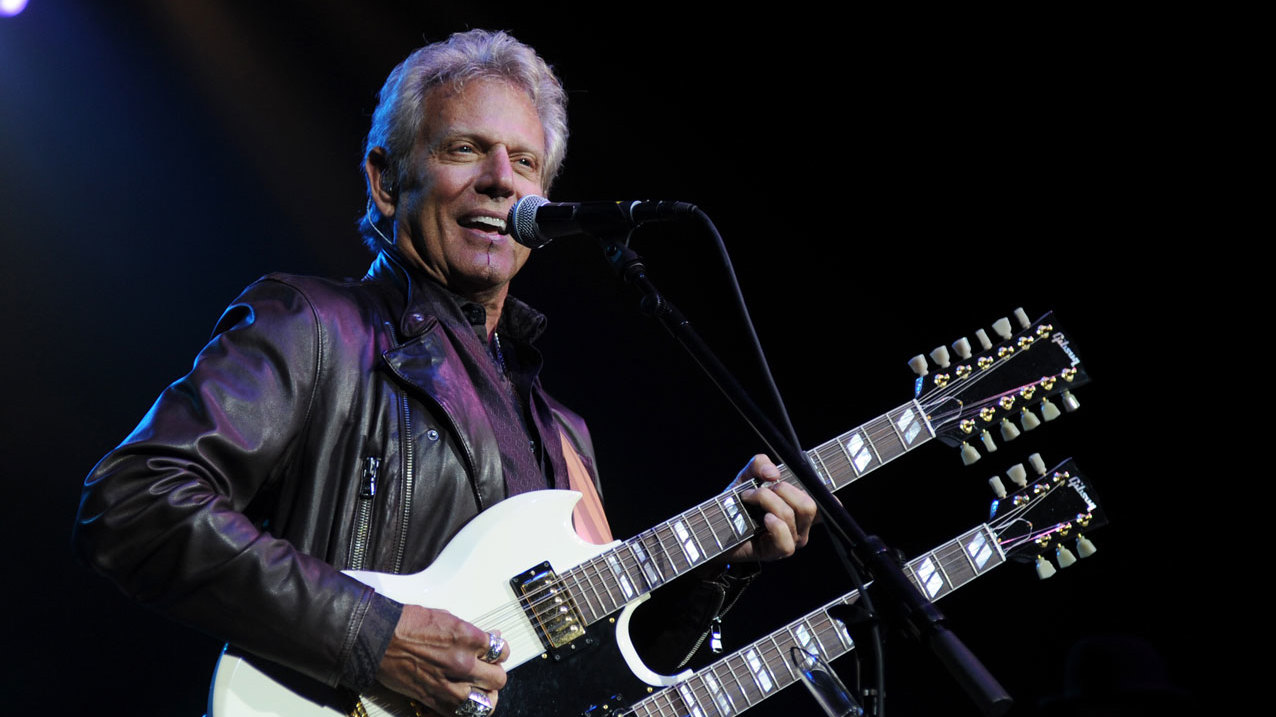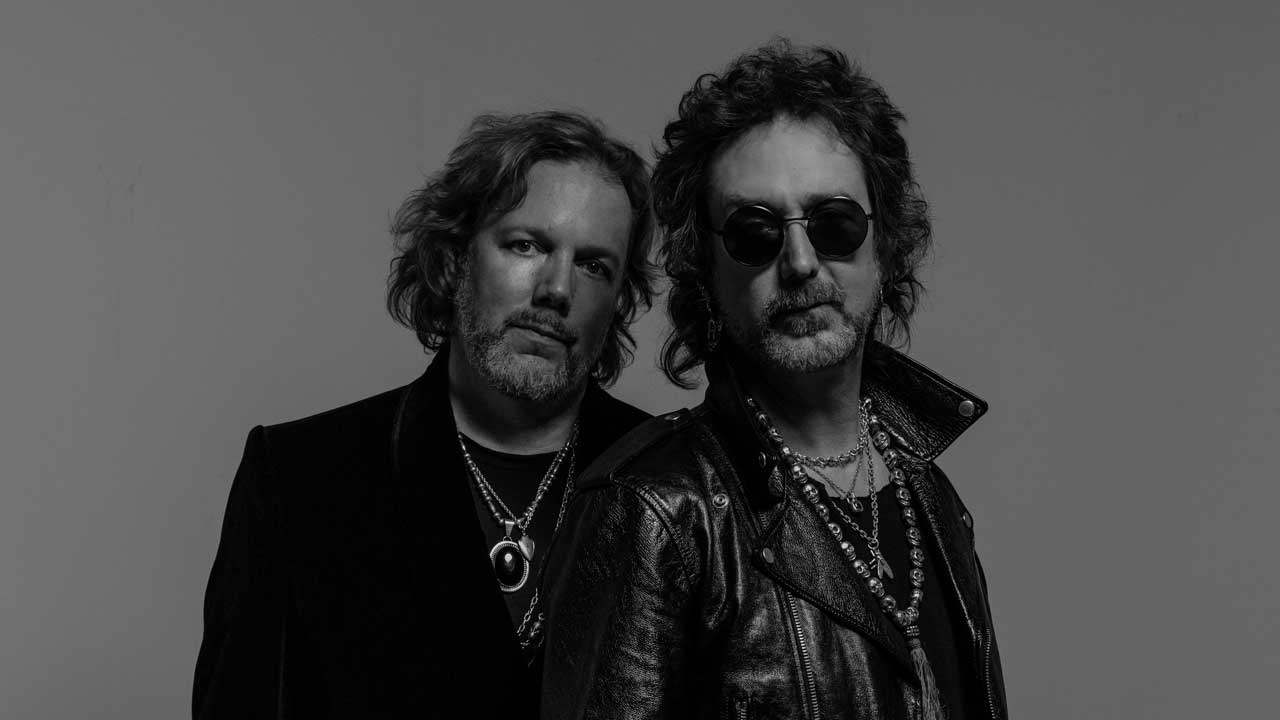Don Felder interview: the Eagles, divorce, poverty and pudding
'Jeez, what a morbid interview' - former Eagles guitarist Don Felder answers life's most difficult questions

Born in 1947 into “destitute poverty on a dirt road in Florida”, Donald William Felder’s humble roots gave little hint at his future as a giant of American music. Joining the Eagles in time for their 1974 album On The Border, the guitarist was instrumental as the band switched leagues – 1977’s signature hit Hotel California began as his demo tape. But friction was never far away, and in 2001 he was fired from the line-up. Several years of legal tit-for-tat followed.
The decade since then, Felder tells us, has been a period of emotional stocktaking, resulting in both 2006’s tell-all autobiography Heaven And Hell, and his latest solo album, Road To Forever.
What were you like as a schoolboy?
Well, I wasn’t much of an academic. I wound up failing English in ninth grade, because I hated my teacher so much. I was really skinny and frail. I tried to play football one summer, and I lasted about a week before I came home battered, bruised and severely broken. Stephen Stills and I went to Gainesville High School together. We were both a couple of skinny kids, not much fight in either of us.
What was your career low point?
When I left the band – which kinda caught me blind-sided – within 12 months of that I went through a separation and got divorced from my wife of 29 years. All the images that I had of myself – of being in a rock band, being a husband and father, my home, my wife – were all stripped away. It was a difficult time emotionally. My book and Road To Forever are both products of that tragic separation and divorce I went through, both from the Eagles and my ex-wife. Writing them was a very cathartic process. I wanted to sort that out before I went forward in my life, carrying all this silent baggage along with me.
You’re all in your 60s – isn’t it time the Eagles stopped bickering?
Sign up below to get the latest from Classic Rock, plus exclusive special offers, direct to your inbox!
I’m not bickering. I’ve reached out numerous times and made efforts directly and indirectly to communicate with them. Not in the hopes of any sort of reunion or anything, but just to shake hands, be friends and go on with life. The only response I ever receive from those guys is from their lawyers. So I would have to say that it’s not me that’s still bickering, but the other side.

Do you regret laying into your bandmates in your autobiography?
I was as honest as I could be, and I don’t really find any regret for having written the truth of what I saw. I thought it was only fair to the public that they see the light and the dark, the beauty and the beast, in us all. And in me as well. I tried to lay all my sins and warts out. All the mistakes and flaws that I’d exhibited through the course of my life. I just told it as truthfully as I could. Nobody complained – that I know of.
What do you think is the secret of success?
I think it’s 50 per cent hard work and 50 per cent luck. What has surprised me, though, is that when I started in the business, to be a recording artist was all auditory. Then MTV came along and it became visual. I just finished watching the Superbowl with Beyoncé, and she has this unbelievable wardrobe, dancers, fireworks coming out of guitars… For all I know she could have been lip-syncing, and probably was. Two weeks after that I saw History Of The Eagles, and it’s five guys walking out in ripped jeans, football jerseys, long hair, no make-up, no visual presentation whatsoever. But we all locked down, and the quality of the music was what sold that band.
The Eagles sold more than 150 million records. Do you remember how it feels to be broke?
I grew up in destitute poverty. I really grew up with nothing. My dad was a mechanic, and would work 14 hours a day and come home covered in grease. He saved every nickel he could, because he went through the Great Depression as a child, and wound up laying bricks, on his hands and knees. He would earn 10 cents a day – that would buy one loaf of bread. He never forgot that sense of starvation and desperation. And that was somewhat pounded into me. So I’ve never been foolish with money.
- The Eagles: "It's a record about the dark underbelly of America"
- Hotel California solo could have been lost forever
- Don Felder: Road To Forever
- Every Song On The Eagles’ Hotel California Ranked From Worst To Best
Do you believe in God?
Absolutely. But I don’t think that has much to do with this article.
Where do you stand politically?
I’m not a party-based person. I vote for the candidate I think will do the best job, and I don’t care if he’s an independent, Democrat, Republican… We just need somebody to reach across both aisles of this log-jam in Washington. Where do I stand on gun law? I don’t believe that, politically, there will ever be a ban on guns in this country. There’s so many strong gun lobbies, manufacturers, people who have an interest in that whole industry. It’s like trying to ban cars.
What would you have as your final meal?
Well I know what the dessert would be: icky-sticky pudding. A famous stage actor named Howard Keel introduced me to it and shared the recipe. That would probably be the end-all and be-all for my taste delight here on this planet.
What inscription would you have on your tombstone?
Jeez, what a morbid interview. Well, I don’t intend to have a tombstone. It’s a waste of the environment, and it’s usually some sort of homage to yourself. Usually the people that have the largest, most narcissistic personality disorder erect the largest vault or shrine to themselves.
This interview originally appeared in Classic Rock 186.
Henry Yates has been a freelance journalist since 2002 and written about music for titles including The Guardian, The Telegraph, NME, Classic Rock, Guitarist, Total Guitar and Metal Hammer. He is the author of Walter Trout's official biography, Rescued From Reality, a music pundit on Times Radio and BBC TV, and an interviewer who has spoken to Brian May, Jimmy Page, Ozzy Osbourne, Ronnie Wood, Dave Grohl, Marilyn Manson, Kiefer Sutherland and many more.

